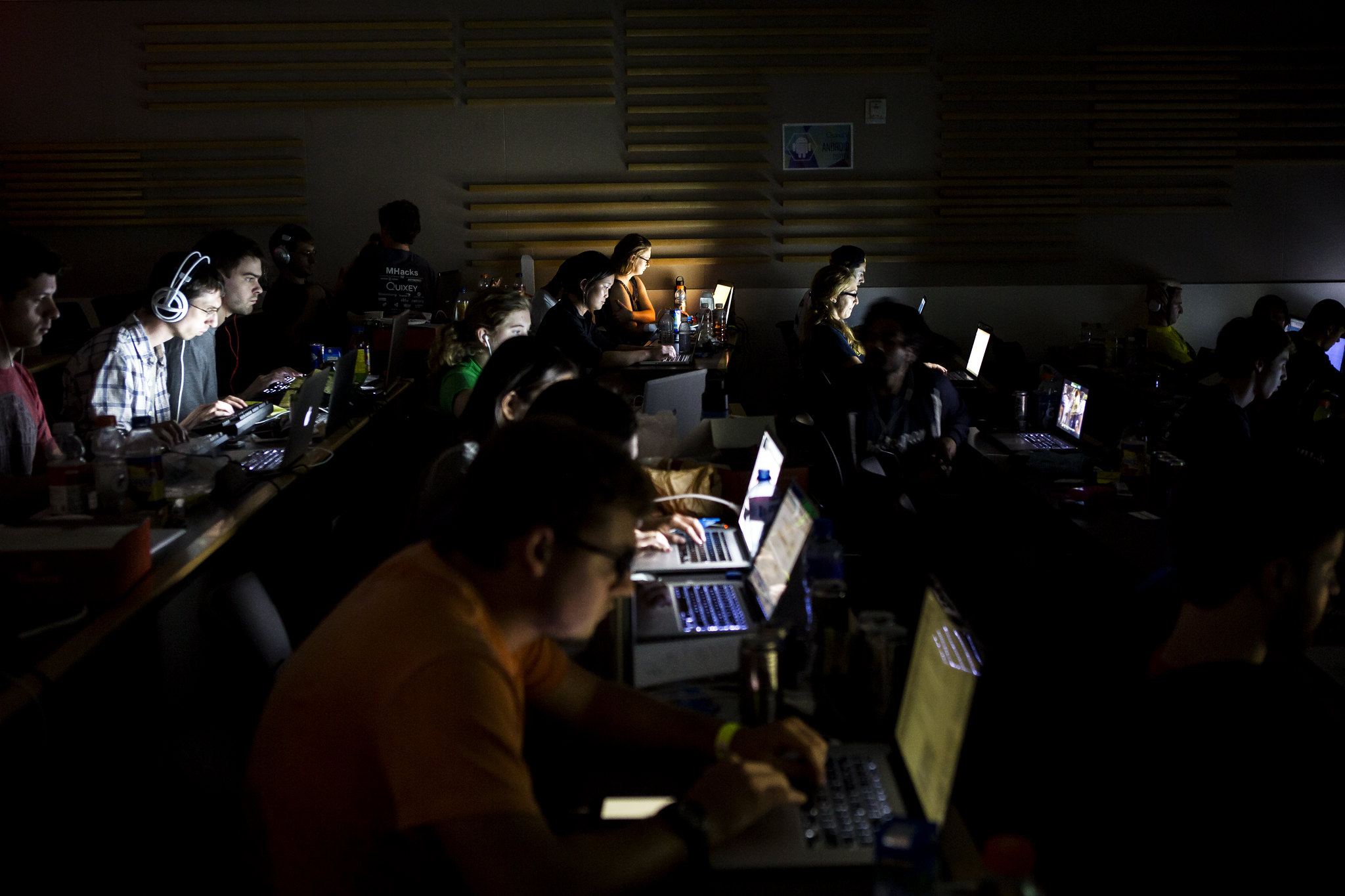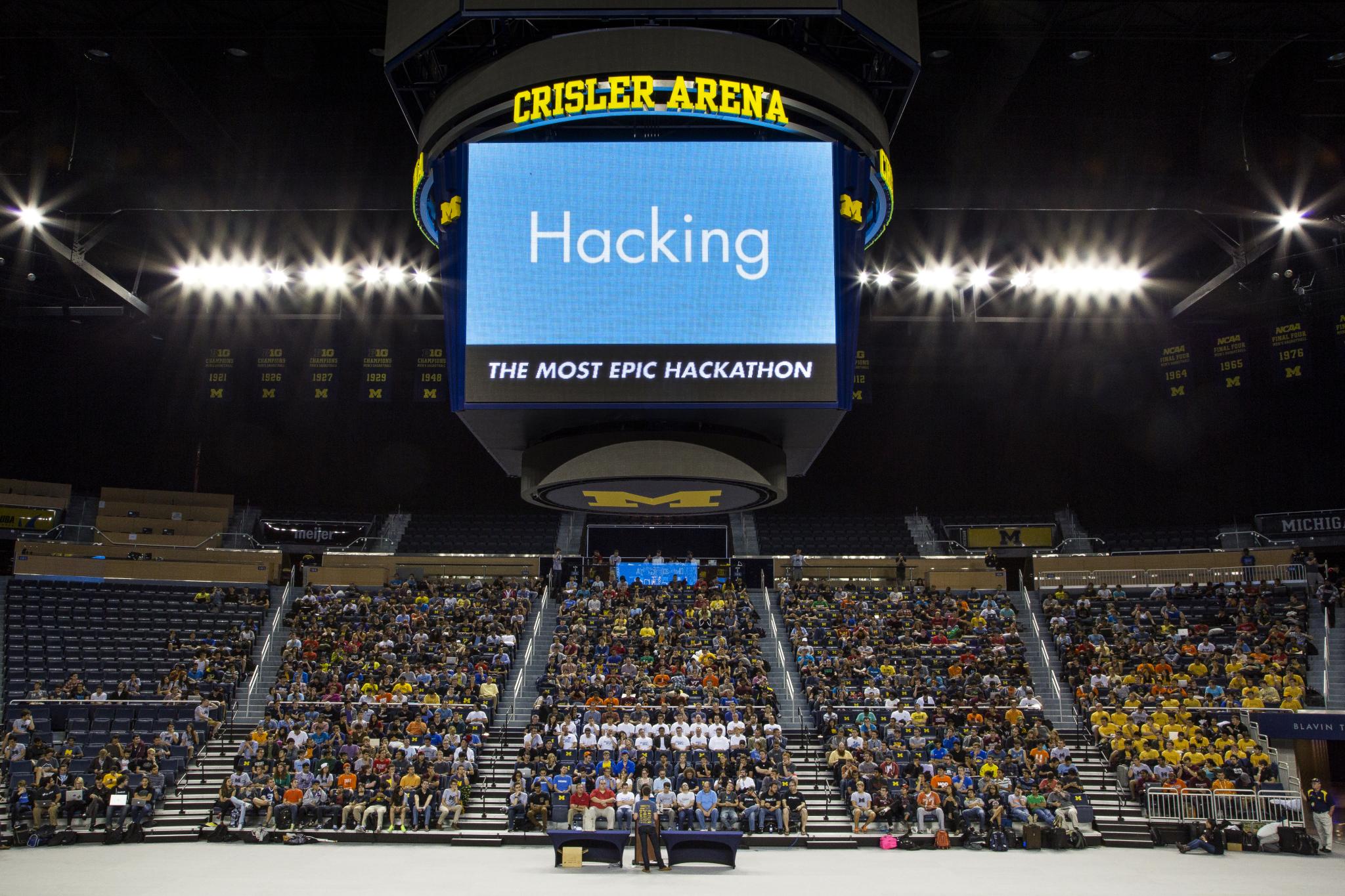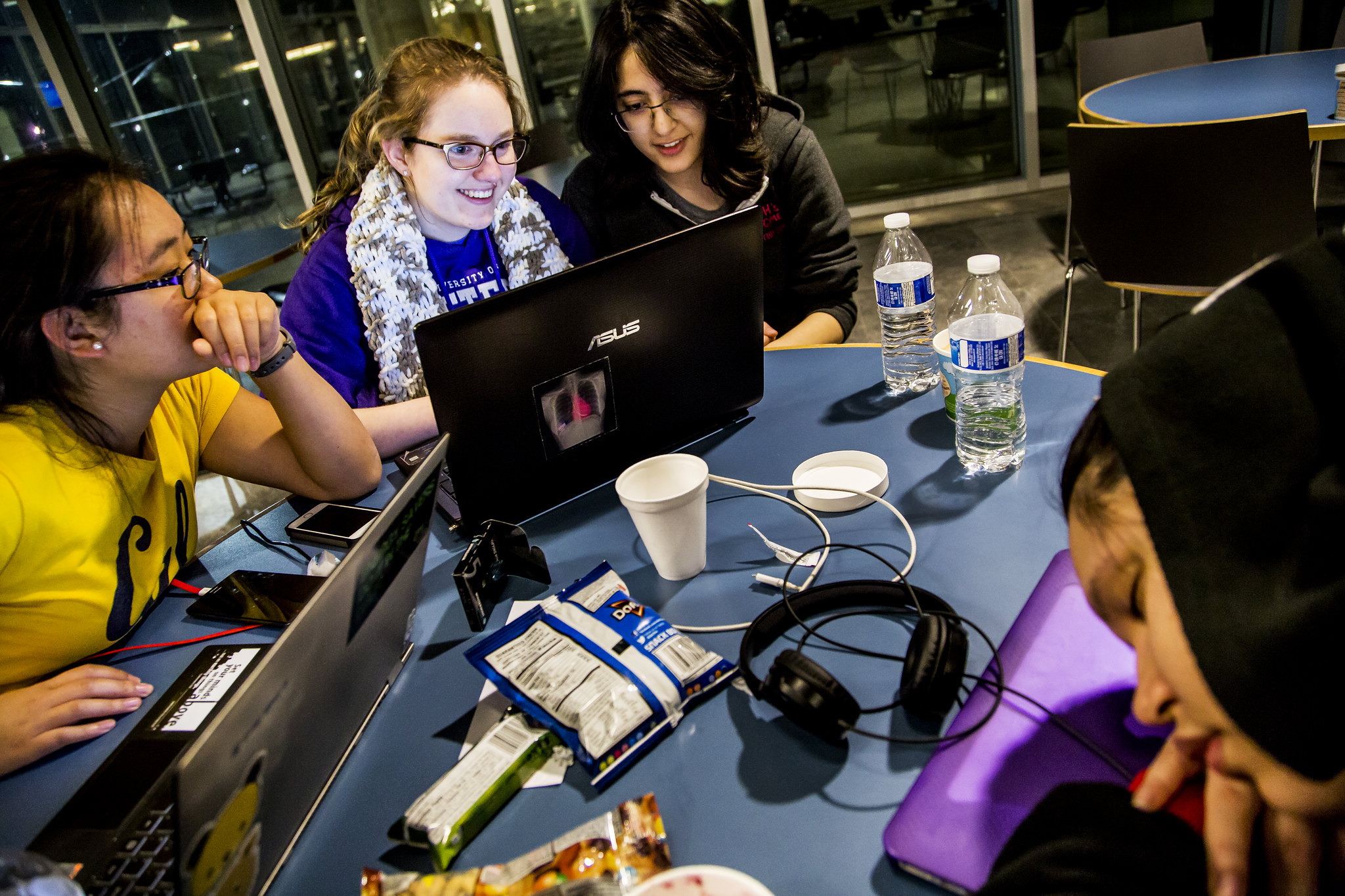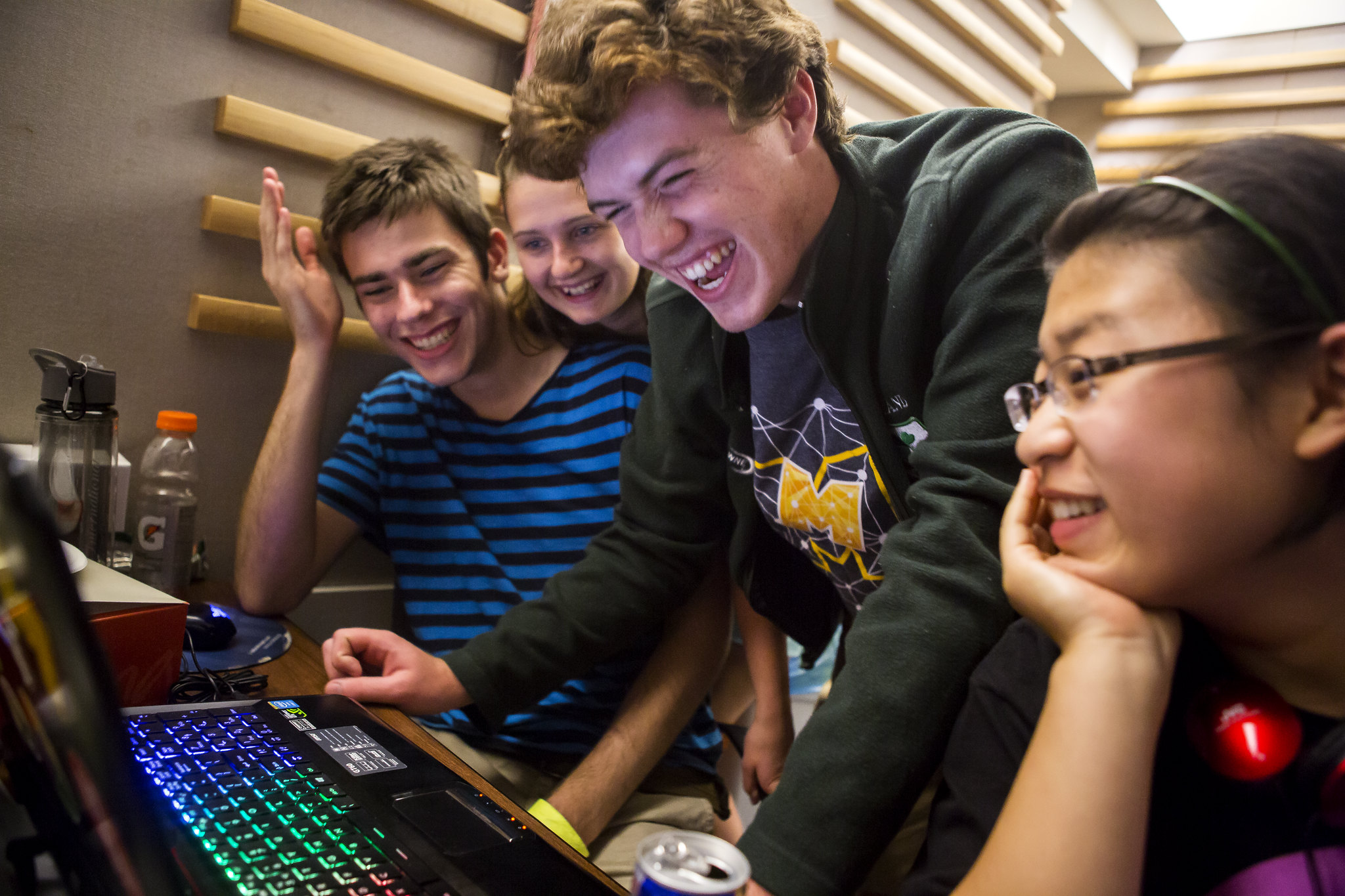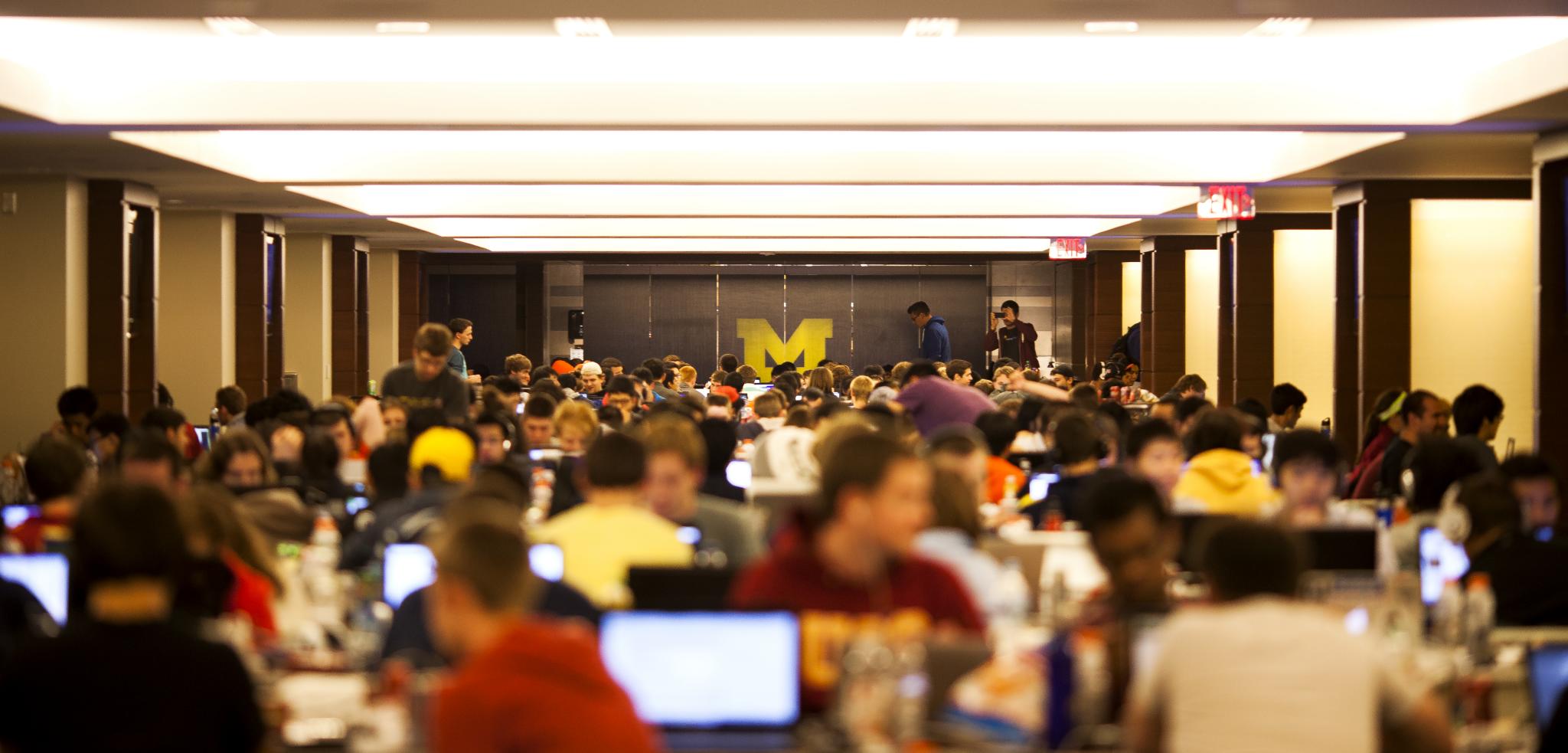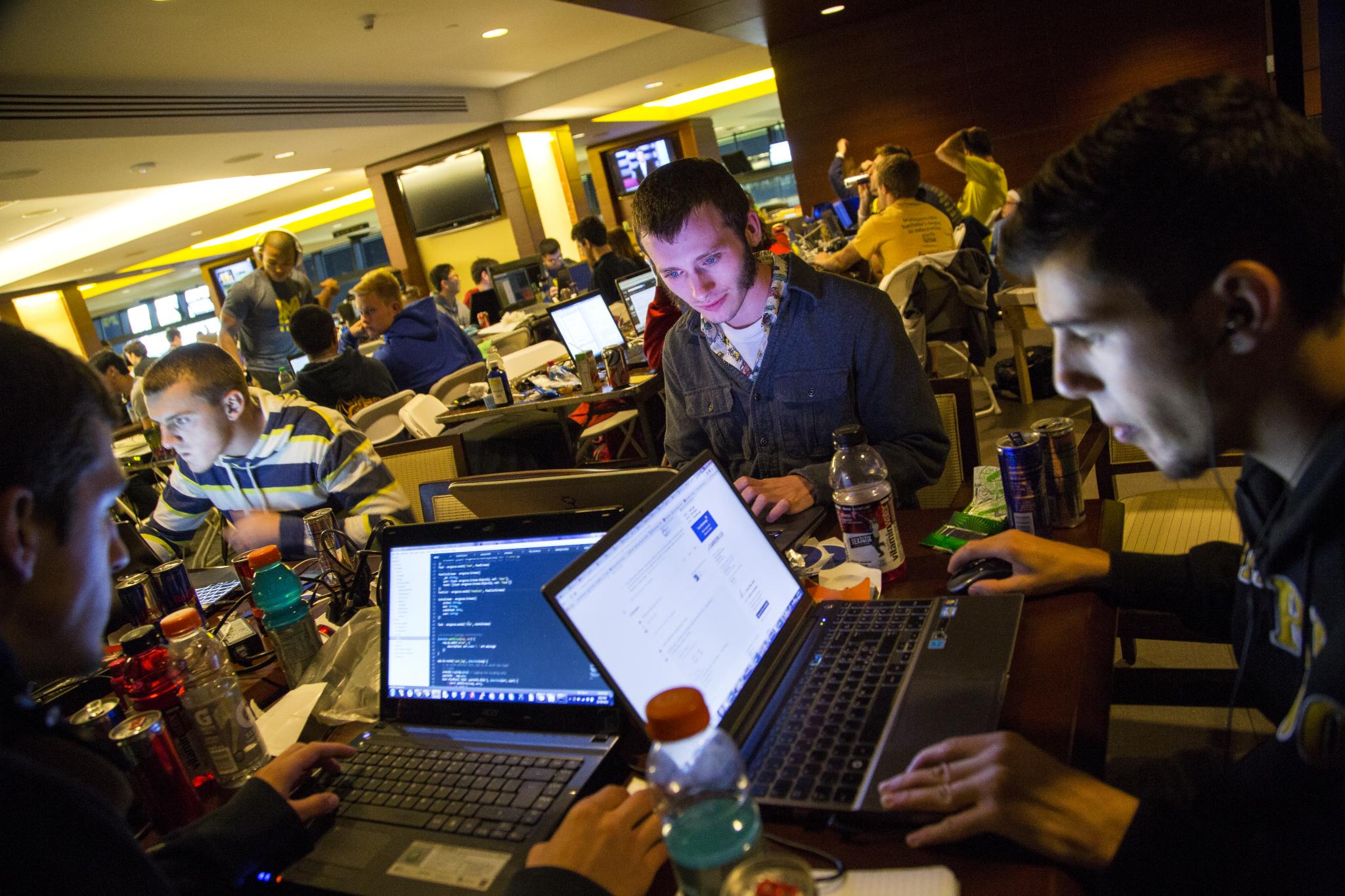CS students revive MHacks legacy
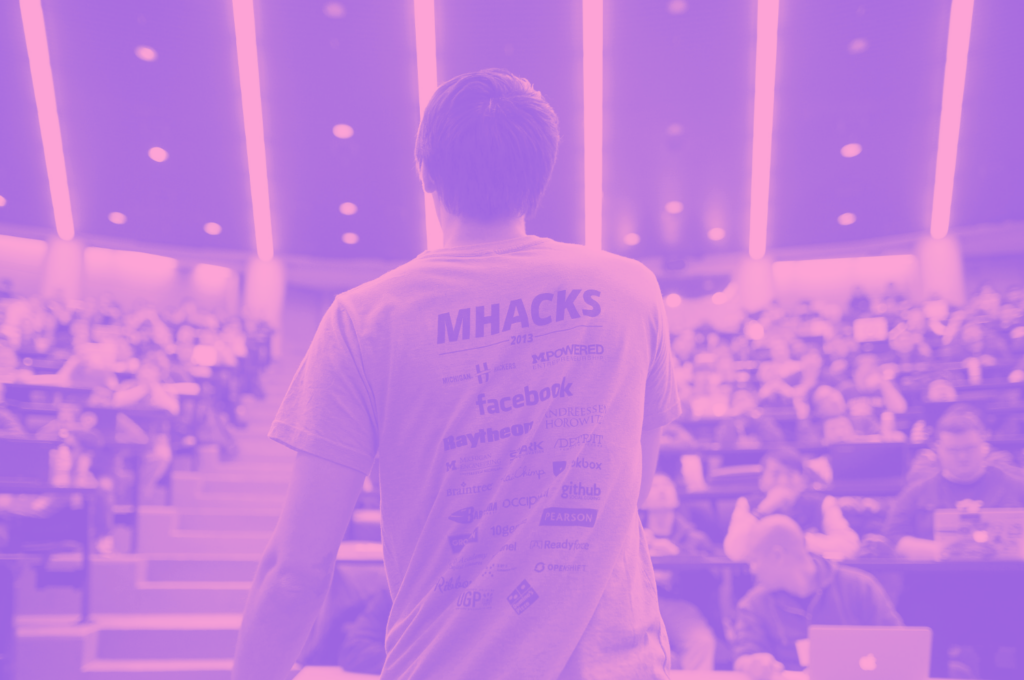
Students from across the country will congregate on University of Michigan’s North Campus this November 18-19 for the long-awaited relaunch of MHacks, an event centered around fast, creative, team-based building of new tech solutions. With the 2023 event, MHacks is back in-person for the first time since 2019. With over 1,000 applicants so far and 500 expected to attend, MHacks co-directors and CS undergraduates Spencer Goodwin and Adviti Mishra are hoping that this reboot will help bring the colorful and storied tradition of U-M hackathons back to life.
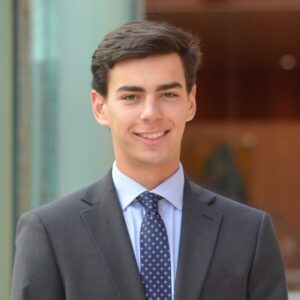
“MHacks used to have such a big legacy and presence at U-M,” said Spencer. “We’re really looking forward to reviving MHacks and making it the fun, creative, community event it used to be.”
Spencer and Adviti’s MHacks journey began in a storage unit. They and other members of U-M entrepreneurial student organization V1 gained access to stored remnants of past MHacks events, seeking to learn more about the famous hackathon, once the largest in the world.
Rifling through old gear and promotional material from hackathons past solidified for them not only the special place the event holds in University of Michigan history, but also its potential for the future. Once the dust settled, their mission was clear: it was time to bring MHacks back.
“We found this old storage unit with so many things left over from previous hackathons: from Xboxes and PS4s to promotional items like bottles and bags,” said Adviti. “When we discovered that vault, we realized how rich a legacy MHacks has, and that inspired me, Spencer, and the rest of the team to try to restore MHacks to its former glory.”
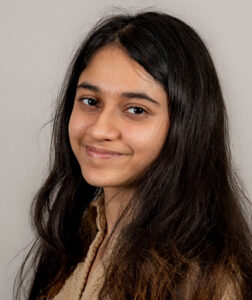
MHacks was once one of the best-known hackathons in the world, bringing together teams and individual competitors from across the globe to dream up new software and hardware solutions in expedited fashion. Traditionally, participants have a short amount of time–in the case of MHacks, just 36 hours–to come up with and build their designs. The result is a chaotic, thrilling, caffeine-filled adventure, where collaboration, creativity, and innovation are the norm.
“Hackathons are an opportunity for people to grow, learn, and use their technical skills outside of the classroom,” said Spencer. “You see so much drive and passion as teams get fixated on their ideas and code through the night to build their projects. It’s pretty amazing what these hackers can pull off in just 24 or 36 hours.”
While MHacks has never completely disappeared from U-M, a combination of setbacks has caused it to lose traction in recent years. A venue move in 2018 meant reduced attendance, and the Covid-19 pandemic forced the event online, further decreasing participation. From over 2,000 participants at its height in 2016, when it was the most-attended university hackathon in the world, MHacks had shrunk to under 200 participants in 2021.
For Spencer, Adviti, and the rest of the organizing team, revitalizing MHacks isn’t just about increasing numbers; they want to build the hackathon back incrementally and thoughtfully so that future generations of students can carry on the tradition.
“Historically, the event has been a lot bigger, but what we’re trying to do is bring MHacks back in a very sustainable and scalable way,” said Adviti. “Part of that means limiting attendance to around 500 hackers for this year’s event.”
Despite these considerations, this year’s MHacks reboot has had over 1,000 applicants and even with attendance capped at 500 participants, it is on track to be the largest university hackathon in the Midwest. There will also be 50-plus volunteers, as well as several judges and mentors to help the event run smoothly.
Scenes from past Hackathons
For Spencer and Adviti, this surge of interest is exactly the kind of spark MHacks needs to get back on its feet and reestablish itself as the locus for collaboration and creativity it once was. It’s a trend they hope will extend well into the future.
“Our goal is not just to reestablish MHacks as a significant event on campus,” said Spencer. “We’re also focused on mentoring younger team members and documenting everything to ensure MHacks continues to grow and thrive.”
“We’re excited to bring a fresh perspective and vision to MHacks,” said Adviti, “and continue its legacy for years to come.”
MHacks will take place November 18-19 in the Duderstadt Center on University of Michigan’s North Campus in Ann Arbor. It is being hosted by V1, a student org dedicated to promoting entrepreneurship, startup culture, and building at Michigan. Visit the MHacks website for more information about the event and its sponsors, which include Google, Uber, Capital One, Grainger, CAT, and more.
 MENU
MENU 

